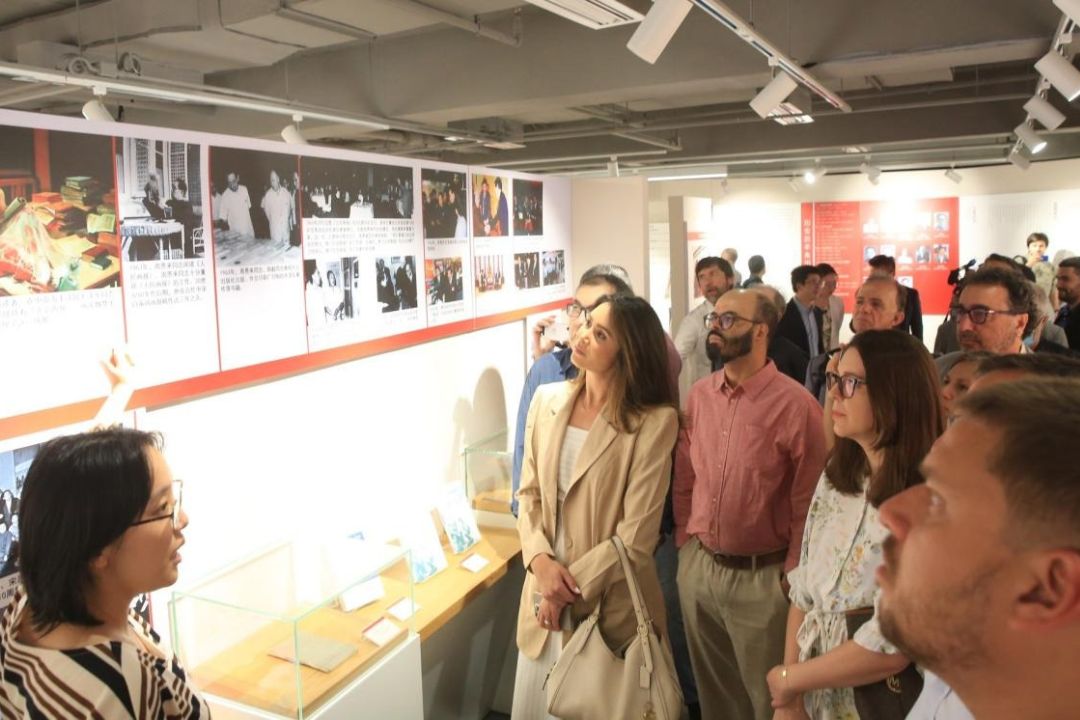
By Filipe Porto*
At the end of August, a delegation of 21 Brazilian journalists visited Beijing, Wuhan and Chengdu, on a trip organized by the International Department of the Central Committee of the Communist Party of China. The visit provided a rich learning experience, with visits to communication institutions, high-technology companies, universities, research centers and prominent tourist attractions.
One aspect that the group found particularly impressive was how technology is already part of Chinese people’s everyday lives. “The future in China’ is a somewhat curious phrase because the Chinese future is now”, said Heloísa Villela, an independent journalist.
Heloísa highlighted how life in the main Chinese cities is made easier by technological solutions, such as battery exchange stations for electric bicycles. “China simplifies the lives of many workers, especially delivery people,” she said, which also highlights the feeling of safety on China’s streets. Heloísa also noted the government’s concern about children’s screen time. In recent years, a program has been implemented that limits children’s access to online games during school hours. “While this may sound like strict control, many Brazilian parents would likely appreciate something similar, as excessive screen time is a global problem,” she said.
Miguel do Rosário, from Revista Fórum, expressed his admiration for the sophistication of China’s state media. “She is very sophisticated, and is always willing to answer our questions and break down many of the prejudices about China that are reflected in the West. The state, an institution that is often seen in the West as incapable of bringing about innovation and excellence, executes this masterfully in its media in China.
Many journalists highlighted how the harmony between modernity and preservation of tradition is a recurring theme. Cíntia Alves, editor of Jornal GGN, was fascinated by the balance between technological advancement and respect for China’s ancient culture. “The word I heard most was ‘harmony’. China is open to foreign journalists, as long as they have the humility to understand it in its entirety.”
In Chengdu, Heloísa was impressed by the modernity of the city, which has seen rapid growth in the last decade. Journalists participated in the opening of the Silk Road International Media Forum. “It’s a project that aims to strengthen relationships,” she said.
Beijing left a deep impression on Tainá Farfan, a reporter for Record, one of Brazil’s main TV networks, who described it as an example of how technology and nature can coexist. “Beijing is a first-world city, with clean rivers and green areas,” she noted.
Miguel do Rosário was also impressed by the size and sophistication of the companies the group visited. “These are strategic companies that make a difference and are committed to China’s opening policy, not only in their commercial transactions, but also in relation to us, visitors. I felt like a tourist visiting attractions, due to their willingness to explain what the companies do.”
Cíntia Alves emphasized the importance of such experiences for understanding China. “While China is a hot topic, we know little about its domestic politics. I left fascinated by the country’s investment in the future, in technology and innovation – something we don’t see in Brazil.”
The experience of Brazilian journalists in China showed the importance of greater exchange between the two countries, both technologically and culturally, demonstrating that the future has already arrived for China – and there is a lot to share with Brazil.
*The author is an editorial consultant for China Hoje.
This text was originally published in China Hoje magazine. Click here, sign up to our community, receive a free digital subscription and access the full content.
Source: https://www.chinahoje.net/uma-visita-muito-importante/

